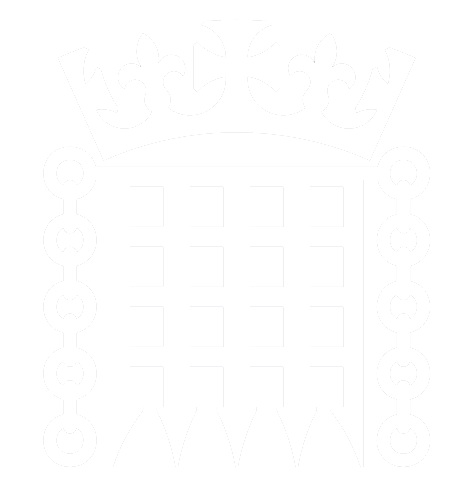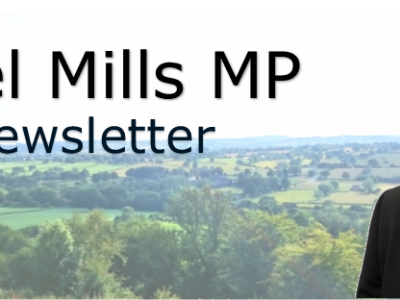Subscribe to my future newsletters here

Dear Constituent,
The coronavirus crisis is probably the worst crisis we have had to deal with in my lifetime. The shutdowns and restrictions on our normal lives are unprecedented in peacetime. I would like to thank you all for the way you have responded to the measures introduced by the Government over the last couple of weeks. As the Prime Minister has said, we have not seen the worst of this virus yet but hopefully the measures now in place will be effective in slowing the virus down in the coming weeks and we can gradually get back to normal after that.
I would like to especially thank all of you who are still working during this crisis. Firstly all those working in the health and care sectors caring for people in these most challenging circumstances. I can only admire your dedication and professionalism. The Government is doing everything it can to get you the protective equipment you need, with the army helping out now delivering orders round the country. Across Amber Valley there are also essential businesses producing critical supplies such as food, hand sanitiser and many other vital items as well as those retail outlets providing key supplies for people. Without your work the country could not get through this.
We have taken unprecedented measures to help people through this crisis with the schemes to discourage redundancies, support for the self-employed and make the welfare system easier and quicker to access. The details are still being worked out as schemes on this size have never been done before. I have set out below the links to the various schemes if you need more information.
The last couple of weeks have seen the greatest amount of casework in my 10 years as your MP and my staff and I are working through these as quickly as we can – while working remotely of course. Please do email or call if we can be of any assistance and we will try to help.
In addition to the Coronavirus issues, there are many other important issues we need to address not least the ongoing Brexit negotiations, and I have attached a Brexit update to this newsletter. I now serve as the vice chair of EU Future Relationship and Work and Pensions Select Committees, as well as sitting on the Procedure and Backbench Business committees. We are working to ensure these committees can continue holding the Government to account even if we cannot meet as often in person as normal until the crisis is over.
I hope you all keep well. Please do follow the guidance to stay at home as much as possible. Below are some of the most important government guidelines, and links to government websites which will be constantly updated in light of new information.
COVID-19
Symptoms of COVID-19, and what to do if you are showing symptoms
The most common symptoms of coronavirus are recent onset of a new continuous cough and/or high temperature. For most people, coronavirus will be a mild illness, but it is important that you self-isolate from the day that you show symptoms.
If you live alone, you should stay at home for 7 days from when your symptoms started.
If you live with others and you are the first in the household to have symptoms of coronavirus, then you must stay at home for 7 days, but all other household members who remain well must stay at home and not leave the house for 14 days. The 14-day period starts from the day when the first person in the house became ill.
If you think you have symptoms, the NHS 111 Coronavirus portal can be found here, and should be used rather than going to a GP or ringing 111. The latest stay at home guidance can be found here.
Staying at home
You should only leave the house for very limited purposes:
- Shopping for basic necessities, for example food and medicine, which must be as infrequent as possible
- One form of exercise a day, for example a run, walk, or cycle – alone or with members of your household
- Any medical need, including to donate blood, avoid or escape risk of injury or harm, or to provide care or to help a vulnerable person
- Travelling for work purposes, but only where you cannot work from home
The single most important action we can all take in fighting coronavirus is to stay at home in order to protect the NHS and save lives. The NHS only has a limited number of doctors, nurses and specialist equipment. We are working around the clock to increase NHS capacity, but the more people who get sick, the harder it is for the NHS to cope. We must slow the spread of the disease so that fewer people are sick at any one time.
A list of frequently asked questions about social distancing, and what is permissible during this period, can be found here.
Financial support for those affected by coronavirus
For businesses
The Chancellor has set out a package of temporary, timely and targeted measures to support public services, people and businesses through this period of disruption caused by COVID-19. There is further information about what the government is doing for businesses on my website.
Further information regarding financial support for businesses can be found here.
If you are self-employed
- An income support scheme, to make sure people who work for themselves are getting the financial support they need: the Government will pay self-employed people across the whole UK who have been adversely affected by coronavirus a taxable grant worth 80 per cent of their average monthly profits over the last three years, up to £2,500 a month, for three months. This will be extended for longer if necessary.
- Support will reach those self-employed people who are most in need of it: the scheme will only be open to those with trading profits up to £50,000, leaving 95 per cent of people who are majority self-employed eligible for the scheme. HMRC will also ask people to demonstrate that the majority of their income comes from self-employment, and, to minimise fraud, only those who are already in self-employment, and who have a tax return for 2019, will be able to apply
Further information regarding financial support for those who are self-employed can be found here.
For individuals
- Statutory Sick Pay: You can get £94.25 per week Statutory Sick Pay (SSP) if you’re too ill to work. It’s paid by your employer for up to 28 weeks. If you cannot work while you are self-isolating because of coronavirus, you could get SSP for every day you’re in isolation. You must self-isolate for at least 4 days to be eligible. Find more information here. You do not need to visit a GP to obtain a sick note if you suspect you have coronavirus. Instead, visit the NHS website through this link and one can be obtained online.
- If you are not eligible for SSP – for example if you are self-employed or earning below the Lower Earnings Limit of £118 per week – and you have COVID-19 or are advised to stay at home, you can now more easily make a claim for Universal Credit. More information on eligibility and how to apply can be found here.
Further useful information
Derbyshire County Council are acting as the lead coordinating body for the community in our area and are constantly updating their website with the latest information. This can be found here.
You can sign up for the GovUK email updates on coronavirus, and be notified with any changes in public health guidance by entering your email address here.
Brexit Update
It is now 2 months since the UK left the EU and entered the Transition Period that runs until the end of this calendar year. The focus has now moved to the negotiations on our future partnership with the EU, the first round of which took place in early March. The second round was postponed due to Coronavirus. The talks have been broken down into 11 different subject areas including future trade, transport, fisheries with the aim being to review progress by June 2020 so that a formal agreement can be reached in the Autumn.
Both sides have published their negotiating positions for these discussions. You can see the UK position here and the EU position here. In summary the UK approach is to agree a free trade agreement with the EU with zero tariffs and zero quotas and also to reach a series of other agreements on the other areas, based on both sides acting as independent, equal partners and with no role for the European Courts in arbitrating on the agreements. The EU are also seeing zero tariffs and zero quotas but are aiming for a partnership agreement that covers all the areas in one structure. The UK position is clear that we will not be remaining in the Single Market or Customs Union and these ideas do not form part of either side’s negotiating position.
The main differences between the 2 sides are:
- “Level playing field” – this is essentially the issue of regulatory alignment between the UK and the EU and whether we should commit to following future changes in EU regulation – we have ruled this out as it would effectively mean the EU taking decisions in the UK without us having a say. The compromise is likely to be around both sides committing not to lower key regulatory standards compared to those at the end of 2020. The main areas of contention seem to be on workers’ rights, environmental standards, competition law and state aid. As the UK has no intention of reducing workers rights and environmental standards it may be the latter two issues that cause the most problems.
- Security co-operation – the EU would like us to make binding commitments regarding the European Convention on Human Rights and the role for the European Court of Justice.
- Fishing – the EU want a long-term arrangement and insist this is agreed separately from the main trade negotiations. The UK was this agreed as part of the main trade deal and fishing rules to be based on the International approach of annual agreements on quotas.
- Deal structure – i.e. a series of individual deals or one big one.
Clearly some of these are going to be more difficult to resolve than others. There is also the pressing issue of how the protocol on the Northern Irish border should be implemented and how this may change depending on any agreement reached.
The EU Future Relationship Select committee, on which I serve, had an evidence session with Michael Gove, the cabinet member responsible for the negotiations, which you can watch here.
There is also now the question of how the Coronavirus crisis impacts on the talks given the postponement of the 2nd round, and questions over future rounds. While some negotiations can be done by video conference there are concerns over whether these are effective and clearly all Governments are consumed with dealing with the crisis. The UK policy remains that we will not extend the transition and the deal can be done this year.
Street Watch:
As always, if there are any street repairs in your area, such as potholes, pavement repairs or broken street lights, you can report these issues and concerns to me quickly and easily here so I can ask for the repairs to be investigated and addressed.
GDPR and privacy notice:
Data laws have recently changed with the introduction of the new GDPR legislation. You can find my office’s privacy policy here and, if you don’t want to receive these emails anymore, you can unsubscribe here.
Get in Touch!
As always, you can contact me by hitting the ‘reply’ button on this email, or you can ring my office on 01773 744341.
Twitter and Facebook
You can also follow me on Twitter @NigelMills and like me on Facebook here to stay up to date with news and events in Amber Valley throughout the month.
Yours sincerely,

Promoted by Nigel Mills MP of Unicorn House, Wellington Street, Ripley, Derbyshire, DE5 3EH.
You’re receiving this newsletter because you subscribed to my mailing list.
Would you like to unsubscribe? Unsubscribe from this Newsletter here.

